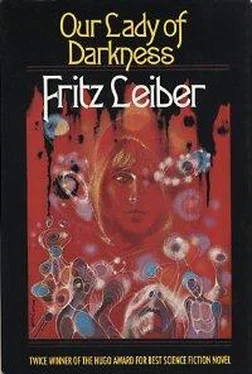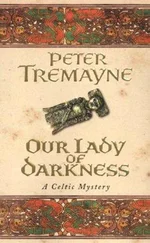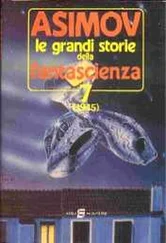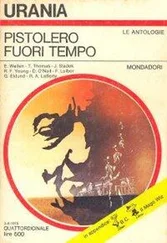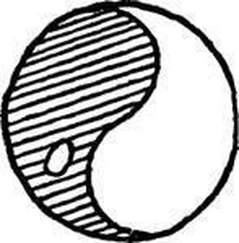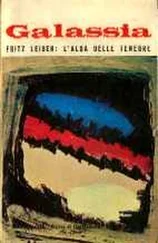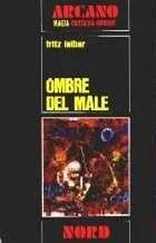A dark blue taxi coasting slowly and silently downhill ghosted by Franz, and drew up at the opposite curb.
No wonder Donaldus had wanted Franz to keep the journal and its newfound curse! Byers was an old campaigner against paramentals, with his defense in depth of locks and lights and stars and signs and mazes, and liquor, drugs and sex, and outré sex—Fa Lo Suee had brought Shirley Soames for him as well as for herself; the humorously hostile groping had been to cheer him. Very resourceful, truly. A person had to sleep. Maybe he’d learn, Franz told himself, to use the Byers method himself some day, minus the liquor, but not tonight, no, not until he had to.
The headlights of an unseen car on Noe illuminated the corner ahead at the foot of Beaver. While Franz scanned for shapes that might have been hiding in the dark and now revealed, he thought of Donaldus’s inner defense perimeter, meaning his aesthetic approach to life; his theory that art and reality, fiction and nonfiction, were all one, so that one needn’t waste energy distinguishing them.
But wasn’t even that defense a rationalization, Franz asked himself, an attempt to escape facing the overwhelming question that you’re led to: Are paramentals real?
Yet how could you answer that question when you were on the run and getting weary and wearier?
And then Franz suddenly saw how he could escape for now, at least buy time in which to think in safety. And it did not involve liquor, drugs, or sex, or diminishing watchfulness in any way. He touched his pocketbook and felt inside it—yes, there was the ticket. He struck a match and glanced at his watch—not yet quite eight, still time enough if he moved swiftly. He turned. The dark blue cab, having discharged its passenger, was coming down Beaver with its hire light on. He stepped into the street and waved it down. He started to get in, then hesitated. A searching glance told him that the dusky, lustrous interior was empty. He got inside and slammed the door, noting approvingly that the windows were closed.
“The Civic Center,” he directed. “The Veterans Building. There is a concert there.”
“Oh, one of those,” the driver said, an older man. “If you don’t mind, I won’t take Market; it’s too torn up. Going around, we’ll get there quicker.”
“That’s fine,” Franz said, settling back as the cab turned north on Noe and speeded up. He knew—or had been assuming—that ordinary physical laws didn’t apply to paramentals, even if they were real, and so that being in a swiftly moving vehicle didn’t make his situation any safer, but it felt that way—it helped.
The familiar drama of a cab ride took hold of him a little—the dark houses and storefronts shooting past, the slowings at the bright corners, the red-green race with the stop lights. But he still kept scanning, regularly swinging his head to look behind, now to the left, now to the right.
“When I was a kid here,” the driver said, “they didn’t use to tear up Market so much. But now they do it all the time. That BART. And other streets too. All those damn high rises. We’d be better off without them.”
“I’m with you there,” Franz said.
“You and me both,” the driver confirmed. “The driving’d sure be easier. Watch it, you bastard.”
The last rather mildly spoken remark was intended for a car that was trying to edge into the right lane on McAllister, though hardly for the ears of its driver. Down a side street Franz saw a huge orange globe aloft like a Jupiter that was all one Red Spot—advertisement of a Union 76 gas station. They turned on Van Ness and immediately drew up at the curb. Franz paid his fare, adding a generous tip and crossed the wide sidewalk to the Veterans Building and through its wide glass door into its lofty lobby set with eight-inch-diameter tubular modernistic sculptures like giant metal worms at war.
With a few other latecoming concertgoers he hurried to the elevator at the back, feeling both claustrophobia and relief as the slow doors closed. On the fourth floor they joined the press of last-minute folk in the foyer giving up their tickets and taking their programs before entering the medium-size high, bone-white concert hall with its checkered ceiling and its rows of folding chairs, now mostly occupied, judging from here.
At first the press of people in the foyer bothered Franz (anyone might be, or hide, anything) but rather swiftly began to reassure him by their concert-normality: the mostly conservative clothes, whether establishment or hippie; the scatter of elven folk in arty garb suitable for rarefied artistic experiences; the elderly groups, the ladies in sober evening dresses with a touch of silver, the gentlemen rather fussily clad at collars and cuffs. One young couple held Franz’s attention for more than a moment. They were both small and delicately made, both of them looking scrupulously clean. They were dressed in very well tailored brand-new hippie garb: he in leathern jacket and corduroy trews, she in a beautifully faded blue denim suit with large pale splotches. They looked like children, but his neatly trimmed beard and the demure outdenting of her tender bosom proclaimed them adult. They held hands rather like dolls, as if they were used to handling each other very carefully. One thought of prince and princess on a masquerade planned and supervised by graybeards.
A very aware and coldly calculating section of Franz’s mind told him that he was not one bit safer here than out in the dark. Nevertheless his fears were being lulled as they had been when he’d first arrived at Beaver Street and later, a little, in the cab.
And then, just before entering the concert hall, he glimpsed at the far end of the foyer the backs of a rather small man, gray-haired, in evening dress and a tall slender woman in a beige turban and pale brown, flowing gown. They seemed to be talking animatedly together and as they swiftly turned toward him, he felt an icy chill, for the woman appeared to be wearing a black veil. Then he saw that she was a black, while the man’s face was somewhat porcine.
As he plunged ahead nervously into the concert hall, he heard his name called, started, then hurried down an aisle to where Gunnar and Saul were holding a seat between them in the third row.
“It’s about time,” Saul said darkly as Franz edged past.
As he sat down, Gun said from the seat just beyond, grinning somewhat thinly and momentarily laying his hand on Franz’s forearm, “We were beginning to get afraid you weren’t coming. You know how much Cal depends on you, don’t you?” Then a puzzled question came into his face when the glass in Franz’s pocket clashed as he pulled his jacket round.
“I broke my binoculars on Corona Heights,” Franz said shortly. “I’ll tell you about it later.” Then a thought came to him. “Do you know much about optics, Gun? Practical optics—instruments and such, prisms and lenses?”
“A little,” Gun replied, with an inquiring frown. “And I’ve a friend who’s very much into it. But why—?”
Franz said slowly, “Would it be possible to gimmick a terrestrial telescope, or a pair of binoculars, so a person would see something in the distance that wasn’t there?”
“Well…” Gunnar began, his expression wondering, his hands making a small gesture of uncertainty. Then he smiled. “Of course, if you tried to look through broken binoculars, I suppose you’d see something like a kaleidoscope.”
“Taffy get rough?” Saul asked from the other side. “Never mind now,” Franz told Gunnar and with a quick, temporizing grimace at Saul (and a quick glance behind him and to either side—crowded concertgoers and their coats made such an effective stalking ground), he looked toward the stage, where the half dozen or so instrumentalists were already seated—in a shallow, concave curve just beyond the conductor’s podium, one of the strings still tuning thoughtfully. The long and narrow shape of the harpsichord, its slim bench empty, made the left end of the curve, somewhat downstage to favor its small tones.
Читать дальше
